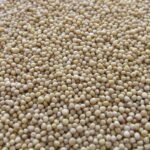Hey there, fruit enthusiasts! Are you ready for a tropical adventure? Let’s sail into the fantastic universe of mangoes, a fruit that’s not just scrumptious but also loaded with an impressive array of nutrients. So, buckle up, folks; it’s going to be a mouthwatering ride!
A Journey Through Time: The Tale of Mangoes
Hold onto your hats! The beloved mango originated from India and Southeast Asia over 4,000 years ago. As traders and explorers traveled the world, so did the mango, finding its way to Middle Eastern, East African, and eventually, South American soils.
Today, mangoes are celebrated globally, not just for their luscious taste, but also for their phenomenal health benefits. So, are you ready to peel back the layers of this tropical superstar?

A Fruit of Many Forms: Eating Mangoes
If you’re wondering, “How can I enjoy mangoes?” here are some juicy ideas:
- Fresh: Nothing beats a juicy, ripe mango on a hot summer day!
- Smoothies: Add some tropical flair to your breakfast with a mango smoothie.
- Salads: Mix diced mango into your salads for a sweet twist.
- Desserts: Mangoes can be the star ingredient in cakes, ice creams, and other desserts.
Digging Deeper: The Nutritional Powerhouse of Mangoes
Now, let’s dive into the nutritional treasure trove that mangoes offer. Here’s a snapshot of the nutritional values per 100 grams of mango:
| Nutrient | Amount |
|---|---|
| Calories | 60 |
| Protein | 0.82 g |
| Fat | 0.38 g |
| Carbohydrates | 14.98 g |
| Fiber | 1.6 g |
| Sugar | 13.66 g |
| Vitamin C | 36.4 mg |
Phew, that’s a load of nutrition in a tasty package! The high vitamin C content aids in immune health, and the fiber content helps in digestion. But that’s not all; mangoes also contain antioxidants like mangiferin, which have numerous health benefits.
Reaping the Rewards: Health Benefits of Mangoes
Let’s break down why mangoes are the bee’s knees when it comes to health. Firstly, the high vitamin C content aids in boosting the immune system and skin health. Secondly, the fiber and water content contribute to digestive health.
Moreover, research shows that the antioxidants in mangoes, especially mangiferin, can protect against cellular damage, inflammation, and chronic diseases like diabetes and cancer. Isn’t that amazing?
Frequently Asked Questions About Mangoes
1. Are mangoes good for weight loss?
Yes, indeed! Despite being sweet, mangoes are low in calories and high in fiber, which can keep you feeling full and help curb overeating.
2. Can mangoes be eaten at night?
Sure, you can enjoy mangoes any time of day. However, due to their natural sugar content, some people prefer to eat them earlier in the day.
3. Are the skin and seed of mangoes edible?
While the skin is edible and packed with nutrients, many people find it tough and unpleasant to eat. The seed, however, isn’t typically consumed.
Parting Thoughts: Long Live the King of Fruits
So, there you have it, folks! The humble mango is truly a gift of nature, brimming with flavor and nutrition. Its journey from ancient times to modern kitchens is a testament to its enduring appeal.
Whether you’re on a health kick or simply have a sweet tooth, mangoes offer the best of both worlds. So the next time you pass by the fruit section, grab some mangoes and let their tropical magic uplift your day!
Mango Fun Facts
- The mango is the national fruit of India, Pakistan, and the Philippines.
- Mango trees can grow as tall as 100 feet.
- There are over 500 varieties of mangoes.
Information Source: USDA National Nutrients Database




